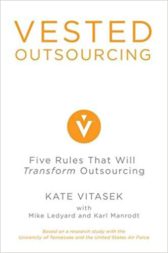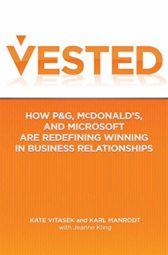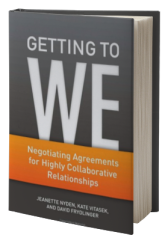The Vested Way: Redefining Winning in Business Relationships
“Nothing personal—it’s just business.” This outdated attitude is the foundation that most business relationships are built on—a zero-sum game where one party wins at the expense of the other. Organizations say things like “valued employee,” “...
“Nothing personal—it’s just business.”
This outdated attitude is the foundation that most business relationships are built on—a zero-sum
game where one party wins at the expense of the other. Organizations say things like “valued
employee,” “strategic partnership,” and “healthcare system,” but the reality is they are stuck on a
transactional treadmill focusing on this task, this time, this deal, and under these terms. The
relationships they create are static and the results are status quo.
Author, educator, and business consultant Kate Vitasek has cracked the code on how to truly create
successful win-win relationships. Kate’s evocative and edutaining Vested Way® keynote unpacks
Five Rules that turn transactional relationships into transformational relationships. Her keynote
takes attendees beyond the theory of “win-win” and is packed with real stories from real
organizations getting real results by applying the Five Rules.
You can trust Kate for her expertise. Kate Vitasek is an international authority on how to build
better business relationships. Her award-winning research is the subject of seven books and she
has been featured as an international authority on how to build better business relationships
on CNN International, NPR, Bloomberg, and Fox Business News. Kate regularly shares her insights
as a Forbes contributor in her column on the art, science, and practice of highly collaborative
relationships.
Attendees walk away:
- Challenging the game they are playing in their existing relationships
- Armed with the Vested Five Rules to help them transform their relationships
- Inspired by real-world examples of how the Vested Way has worked in practice,
creating value far beyond traditional us-vs-them transactional approaches



